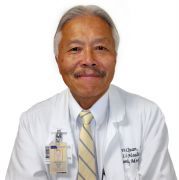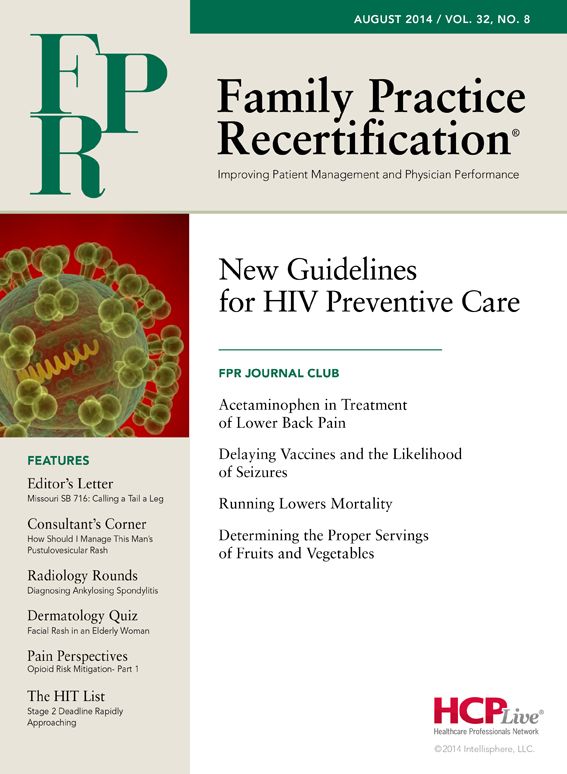Publication
Article
Family Practice Recertification
Missouri SB 716: Calling a Tail a Leg?
Author(s):
On June 7, 2014, the state of Missouri passed State Bill 716, a piece of legislation creating a new category of health care provider in the state, known as the, "Assistant Physician."

Martin Quan, MD
Editor-in-Chief
On June 7, 2014, the state of Missouri passed State Bill 716, a piece of legislation creating a new category of health care provider in the state, known as the, “Assistant Physician.”
Designed primarily to address the shortage of doctors in certain parts of Missouri, where federal surveys estimate one in 5 citizens lack adequate access to doctors, this new law essentially created a “fast-track” pathway for medical school graduates to serve as primary care physicians in rural and other underserved communities without completion of graduate medical education training.
Upon learning of passage of this bill by the state legislatureand its subsequent signing by the governor, I could not help but recall a riddle attributed to Abraham Lincoln. As the story goes, Lincoln addressed a crowd by asking the question: “How many legs does a dog have?” Upon hearing the answer ‘4’ from the audience, Lincoln then asked the question: “How many legs does a dog have if you call a tail a leg?” When the crowd answered ‘5,’ Lincoln corrected them by saying “No. The answer is 4. Just because you call a tail a leg does not make it a leg.”
Missouri SB 716 creates a pathway for medical school graduates who fail to match in the National Resident Matching Program (NRMP) or in the post-NRMP Supplemental Offer and Acceptance Program (SOAP) to become licensed as primary care doctors in Missouri. The legislation stipulates that in order to qualify as an Assistant Physician, the applicant must meet the following criteria: 1) be a resident and citizen of the United States or a legal resident alien, 2) be a graduate of a “medical college approved and accredited as reputable by the American Medical Association or the Liaison Committee on Medical Education” or of any “osteopathic college approved and accredited as reputable by the American Osteopathic Association,” 3) have successfully completed USMLE Steps 1 and 2 within the past two years and, 4) be proficient in English.
Following review and approval by the state Board of Healing Arts (which issues medical licenses in Missouri), and subsequent completion of a 30-day training period with a “collaborative” licensed physician who practices within a 50-mile radius of the applicant’s intended location, assistant physicians are granted “doctor” status in the state. This includes the ability to write prescriptions for schedule III, IV, and V drugs. They are also issued a license to provide primary care services in medically underserved rural or urban areas of the state.
For a variety of reasons, much of organized medicine has been critical and is at odds with SB 716. First of all, graduate medical education training is widely viewed as critical to a physician’s development since medical students are really not trained to be able to independently practice upon graduation from medical school. The great majority of graduates have been provided a preparatory clinical experience and thus lack the skill set required to meet the challenges and demands inherent in an unsupervised, uncontrolled clinical setting.
Second, although too often not given the respect extended to defined medical specialties, primary care practice is extremely challenging, particularly when it comes to managing the undifferentiated patient or the patient with severe illness or injury in a remote setting without readily available clinical back-up. All of this is further compounded by the fact that the pool of medical school graduates from which assistant physicians would be drawn would hardly figure to be the “best and brightest.” Indeed, 97% of US medical school graduates begin residencies coming through the NRMP or SOAP process, as do 40%of foreign-trained immigrant physicians.
What would be a better solution? Perhaps providing greater and more compelling incentives, such as loan forgiveness for the existing and future workforce to practice in rural and other medically underserved communities would be one,as would increasing graduate medical education dollars targeted at increasing the production of family medicine and other primary care residency slots.
Although well-intended, SB 716 represents a flawed and fallacious “band aid” remedy to the primary care shortage facing America, which inadvertently sanctions health care disparity by its legitimization and acceptance of a system that provides a lower quality of care in some areas compared to others. Why? As Lincoln would say, “Just because you call a tail a leg…..”
Martin Quan, MD
Editor-in-Chief
Martin Quan, MD, is Professor of Clinical Family Medicine and Director of the Office of Continuing Medical Education at the David Geffen School of Medicine at UCLA. He is also a member of the Education Advisory Board and consultant to the Committee on Continued Professional Development of the California Academy of Family Physicians and a member of the Kidney Learning System Advisory Board of the National Kidney Foundation. In the past, Quan has served as Program Director of the UCLA Family Practice Residency Program, Co-Director of the UCLA Pre-Doctoral Program in Family Practice, Editor-in-Chief of Clinical Cornerstone, and Vice Chair of the Residency Review Committee in Family Practice for the Accreditation Council for Graduate Medical Education (ACGME).






